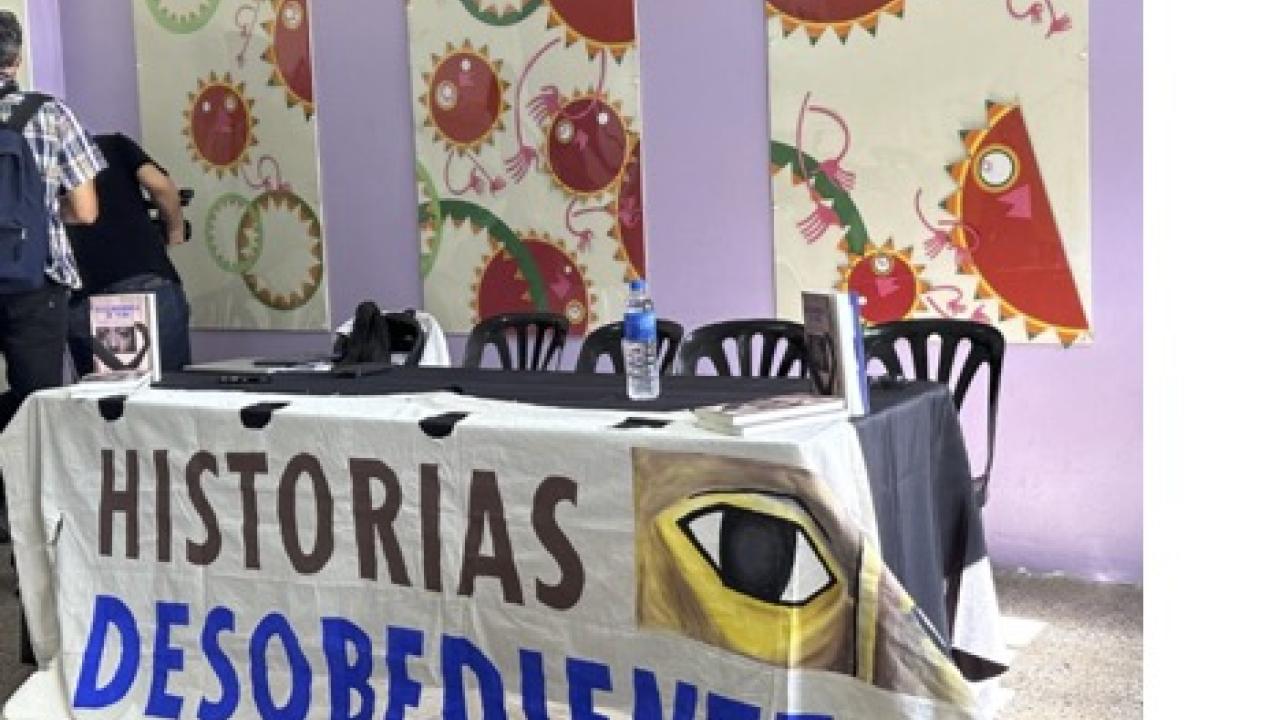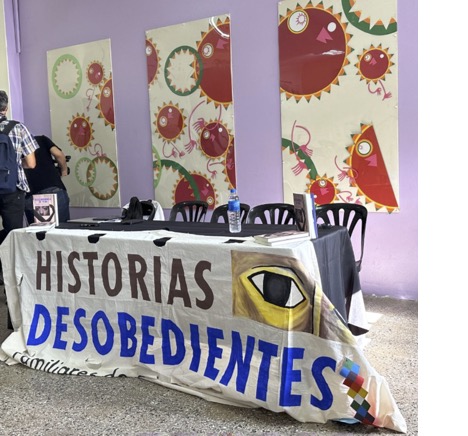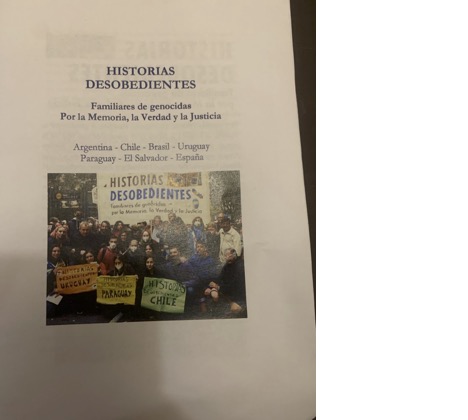
Dispatches from #FMDH23: Historias Desobedientes: Reckoning with Genocide’s Aftermath
Quick Summary
- The multi-national Historias Desobedientes collective seeks to dispell the shame descendants of genocide perpetuators feel, while also encouraging global human rights solidarity in the face of genocide.
Dispatches from #FMDH23:
Historias Desobedientes: Reckoning with Genocide’s Aftermath
Hi everyone–I’m Dheera Dusanapudi, a Human Rights Studies student and second-year International Relations major. I am also one of the four UC Davis students in Buenos Aires attending the third Foro Mundial de Derechos Humanos, alongside Emma Tolliver, Valerie Lima, and Ella Ross.
We attended the panel “Historias Desobedientes: familiares de genocidas por la Memoria, la Verdad y la Justicia” on Associate Vice Provost for Global Affairs Michael Lazzara’s advice. The panel, which included four representatives from Chile, Paraguay, Uruguay, and Argentina, examined the work of the multi-national Historias Desobedientes collective on dispelling the shame descendants of genocide perpetuators feel, while also encouraging global human rights solidarity and condemnation of past genocides.

I was especially struck by some of the comments the Chilean representative, Véronica Estay Stange, had to say regarding the issues of fear and disobedience. Horror, she said, was not an abstract concept: horror brushed its teeth in the morning, kissed its kids. Horror, for many of the survivors of genocide across Latin America, could be summed up in a man; in turn, horror, for so many of the descendants of

those genocide perpetrators, was in the face of their uncle, their fathers, their grandfathers. Ms. Estay Stange went on to suggest disobedience was a human right and even perhaps a duty: the disobedience of survivors against genocidal regimes, but also the disobediences of descendants to speak openly about the harm their relatives had committed, against other relatives’ wishes, while also battling the stigma that often surrounds their own presence.
What, then, is the ultimate goal of bringing together descendants of genocide victims and survivors as well as descendants of those who committed such acts? Such connections offer the opportunity for transgenerational justice; victims of the regimes in Uruguay, Paraguay, Chile and Argentina were often desaparecidos, or ‘disappeared persons’, with no chance for their families to know their final fate, wish them a final goodbye, or respect burial practices. But in bringing together descendants of victims and descendants of perpetrators, there is a chance–however remote–that some of the victims’ relatives might confirm the ultimate fate of their loved ones and part with them on their own terms, not those of a brutal regime.
To explore more work of the Historias Desobedientes collective, click here: https://www.facebook.com/DesobedientesHi/?locale=es_LA
